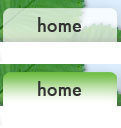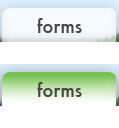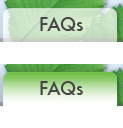Services
Acupuncture
|
Acupuncture / Traditional Chinese Medicine Acupuncture is just one aspect of a more general medical systems referred to as Traditional Chinese medicine (TCM). TCM is a complete medical system that has diagnosed, treated and prevented illness for thousands of years. In TCM, the body is viewed as a delicate balance between two opposing energetic forces: yin and yang, and that the body’s life energy, referred to as Qi (pronounced chee), flows in a specific pattern along energetic meridians throughout the body. Health, then, is achieved by maintaining the balance of Yin and Yang, and allowing free flowing movement of Qi throughout the body. When Qi becomes blocked, or when there is an overabundance of either Yin or Yang, specific symptoms patterns emerge depending on where the blockage of Qi occurs. The term “acupuncture” describes a family of procedures involving the stimulation of specific points on the body that lie on the energetic meridians that allow for the movement of Qi. During an acupuncture procedure, sterile, single-use, hair-thin needles are used to penetrate the skin to influence the points that lie on the meridians below the skin’s surface. The points may be further stimulated by the addition of heat or electric current to enhance the therapeutic effect. TCM includes acupuncture, as well as acupressure, diet, massage, herbs and foods among its treatment strategies. What can I expect during a visit? During an initial intake you will be asked a number of questions regarding your health condition, lifestyle and behavior to establish a therapeutic goal from a TCM viewpoint. During the treatment visits, a number of sterile, single-use, hair-thin needles will be inserted at various points on the body that will correct the imbalances identified from the initial intake. Acupuncture points are found all over the body, from the top of the head to the tips of your fingers and toes. People experience acupuncture differently, but most feel minimal to no pain as the needles are inserted. Once the needles are inserted, some people report a sensation of a dull ache, a mild tingling, burning or itching sensation, or a sense of heaviness; all of which are completely normal as patients experience the stimulated flow of Qi in different ways. Additionally, some people will feel quite energized by a treatment, while other will feel quite relaxed. Follow up visits for acupuncture are generally weekly for 4-6 weeks followed by a re-evaluation visit. Specific acupuncture follow up appointments have been set up for patient convenience and to allow for regular acupuncture appointments without a consultation. |







